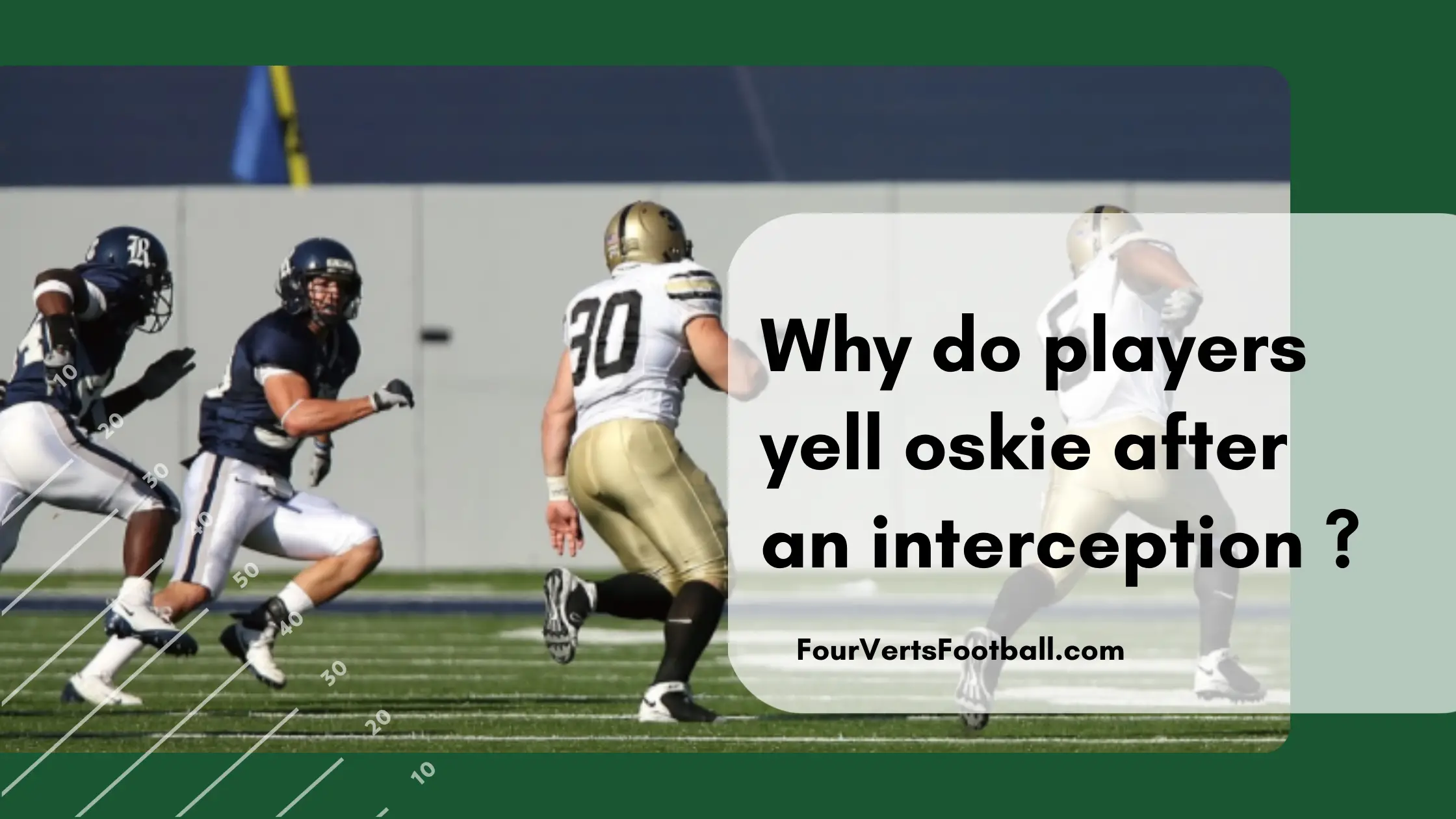Have you ever watched a football game and heard a defensive player yell the word “oskie” after intercepting a ball? This interesting football term has been used for years yet many fans of football have no idea what it means.
The term oskie is used as a signal to alert other defensive players to block in order to create an opportunity for a big interception return.
When an interception occurs in football, not all defensive players are going to be looking in towards the ball. And based on how the players are lined up it is much more likely that the offensive line will see the interception than the defensive line who are facing the opposite direction.
In order to get the attention of the defensive players, the term oskie is used. When a ball is intercepted there are going to be eleven offensive players looking to bring down the defender that intercepted the ball.
If you are looking for a big return you are going to need some of these would-be tacklers to be blocked. By using the oskie term defensive players can quickly abandon their assignments and focus on blocking.
This greatly increases the chance that the intercepting team will be able to achieve a pick-six after yelling oskie.
Where does the term oskie come from?
The origin of the term oskie itself is unkown. Though we do know that this term has been used in football since the 1930’s. Tennessee Volunteers head coach Bob Neyland included using the term Oskie in his “seven maxims of football”.
Some stories state that the oskie came from Neyland’s pet dog. The story goes that Neyland would have his dog retrieve and fetch the ball. In order to command the dog to get the ball Nyland would say the term “ball, oskie”.
Either way it can be said for sure that the term Oskie has been around football for a long time.
How To Block On An Interception Return
Now that we know what Oskie means in football, let’s get into how exactly it should be executed. When it comes to interception returns blocking is fairly straightforward.
Since the position of the players on the field cannot be predicted on an interception each player is not going to have an assigned block. Instead, players simply want to block anyone that may have a shot at bringing down your return man.
This means any offensive player between the endzone and your return man is someone that should be blocked.
Additionally one of the most important aspects is that a blocker does not commit a penalty. Blindside blocks, crackback blocks, and blocks in the back have brought back many interception returns.
Players must make sure if they are blocking on an interception return they are doing it legally.
That is all on players saying Oskie after an interception to learn more see why quarterbacks yell white 80 or why they say blue 80 and green eighty.


One of General Neyland’s seven game maxims is “Ball, oskie, cover, block, cut and slice, pursue and gang tackle . . . this is the WINNING EDGE.” The term oskie appeared first in General Neyland’s journal in 1938 and is believed to come from the University of Illinois, where “Oskee Wow Wow” was the title of a 1911 fight song. Neyland employed the term as a way for pass defenders to alert teammates that the ball had been intercepted. By yelling “oskie wow wow,” the defenders quickly converted from playing defense to offense, improving the chance of a successful interception return. Neyland may have learned of the term from Professor Robert “Red” Matthews, UT’s first cheerleader, who had cheered at Illinois before joining the UT faculty.
My hs football coach taught us to say it after an interception.